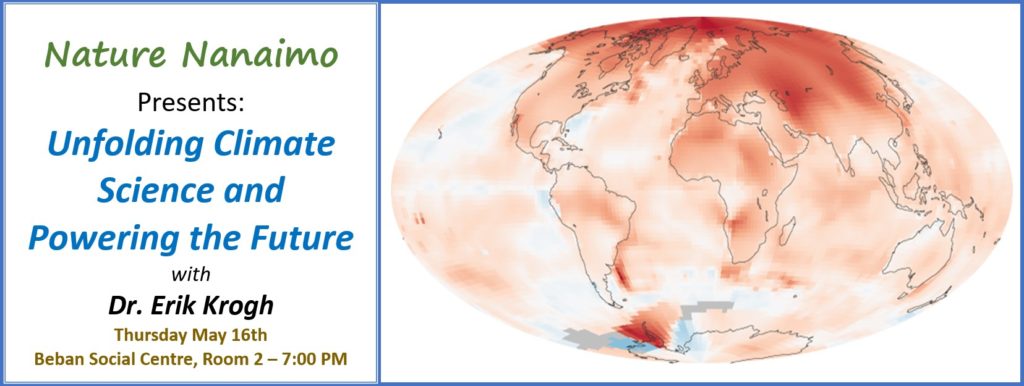
A review of the scientific method with an emphasis on the human element of problem solving and particular reference to the challenges of understanding complex natural systems like the Earth’s climate. The presentation emphasizes the central role of observation, measurement, imagination, critical thinking and reproducibility. We will describe the physical basis radiant energy absorption and global warming potential of greenhouse gases, changes in atmospheric composition due to human activity, environmental implications including, loss of polar and alpine ice, marine acidification, sea-level rise and population shifts. This presentation will review compelling arguments to develop and adopt sustainable energy options above and beyond the issue of global warming, including impacts on air quality, marine acidification and the conservation of carbon reserves for new advanced materials. We will discuss the scope and magnitude of our global energy demands and provide a the starting point for discussions on technical, sociological and political solutions.
Dr. Erik Krogh is faculty member in the department of Chemistry at Vancouver Island University, where he teaches environmental and atmospheric chemistry. He is the Co-Director of the nationally funded Applied Environmental Research Laboratories on the Nanaimo campus and is a faculty advisor for the Awareness of Climate change through Education and Research group.
The Awareness of Climate change through Education and Research (ACER) is a nationally funded public outreach group made up of a team of dedicated students and faculty with a shared vision to of promoting a greater understanding of the science and implications of climate destabilization. This initiative is rooted firmly in the belief that the ability to make informed decisions on an inherently complex topic requires an awareness and understanding. ACER has developed numerous public presentations, hands-on activities and workshops aimed at increasing scientific literacy and promoting a greater understanding of the social, political and economic implications of climate change. To date, ACER has presented on various aspects of climate change to nearly 18,000 students and members of the general public.
